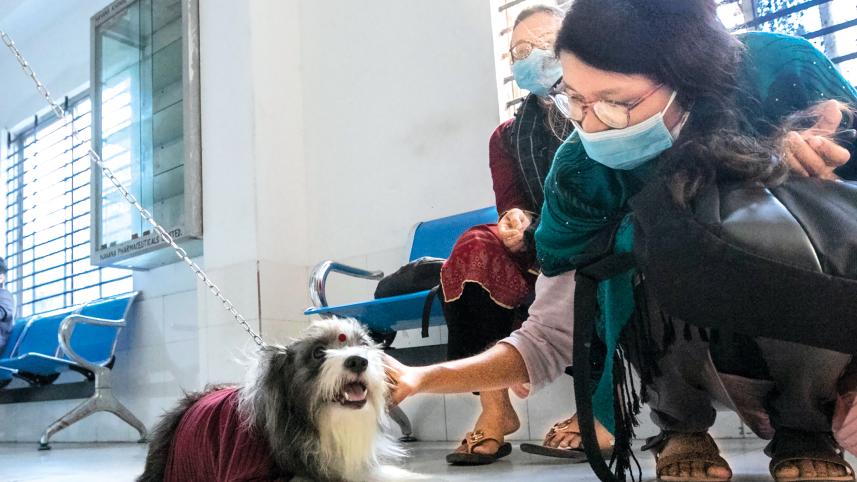Treating animals with care

With a tensed face, Ghagra Bazar resident Babul Chakma stood with his puppy "Brownie" at the campus of Chittagong Veterinary and Animal Science University (CVASU) on Sunday.
The Rangamati native's anxiety was growing as he could not understand what had happened to his beloved dog -- it was howling nonstop.
A doctor soon came in, examined the puppy, and prescribed some medicines.
"I treated my puppy in Rangamati but the she didn't recover. So I brought her here for better treatment," said Babul. "I have heard they have experienced veterinarians here. Hopefully, with their service, my puppy will get better," he added.
The Sahedul Alam Quadery Teaching Veterinary Hospital (SAQTVH) of CVASU is visited by many like Babul, from all over the country, for treatment of their pets suffering from complex diseases.
Located at Khulshi's Zakir Hossain Road the hospital sees around 100 to 150 patients every day, according to authorities.
While visiting the hospital on Sunday morning, this correspondent saw pet parents gathering with their dogs, cats, rabbits and birds. Many also came in with cows, calves, sheep and goats. Some had injuries, some suffered from loss of appetite, while others needed surgery and sterilisation.
The SAQTVH has eight different departments, including large animal, small animal, poultry, gynaecology and surgery.
Besides serving animals, the mobile clinic is an important part of CVASU where students can gather practical knowledge.
Moreover, the hospital also provides its service in exchange for only a nominal registration fee, making it widely accessible.
The hospital usually remains open from 9:00am to 4:00pm during working days, with doctors serving in two shifts, said Dr Md Rayhan Faruque, director of SAQTVH. Three doctors serve in each shift, he added.
Besides, the hospital also has doctors who attend to emergency phone calls.
"We treat animals the same way we would treat people. Every day, we treat animals from all over the country," Faruque said.
According to hospital data, 4,606 animals were treated at the hospital in 2015, which increased to 7,022 animals in 2017.




 For all latest news, follow The Daily Star's Google News channel.
For all latest news, follow The Daily Star's Google News channel.
Comments